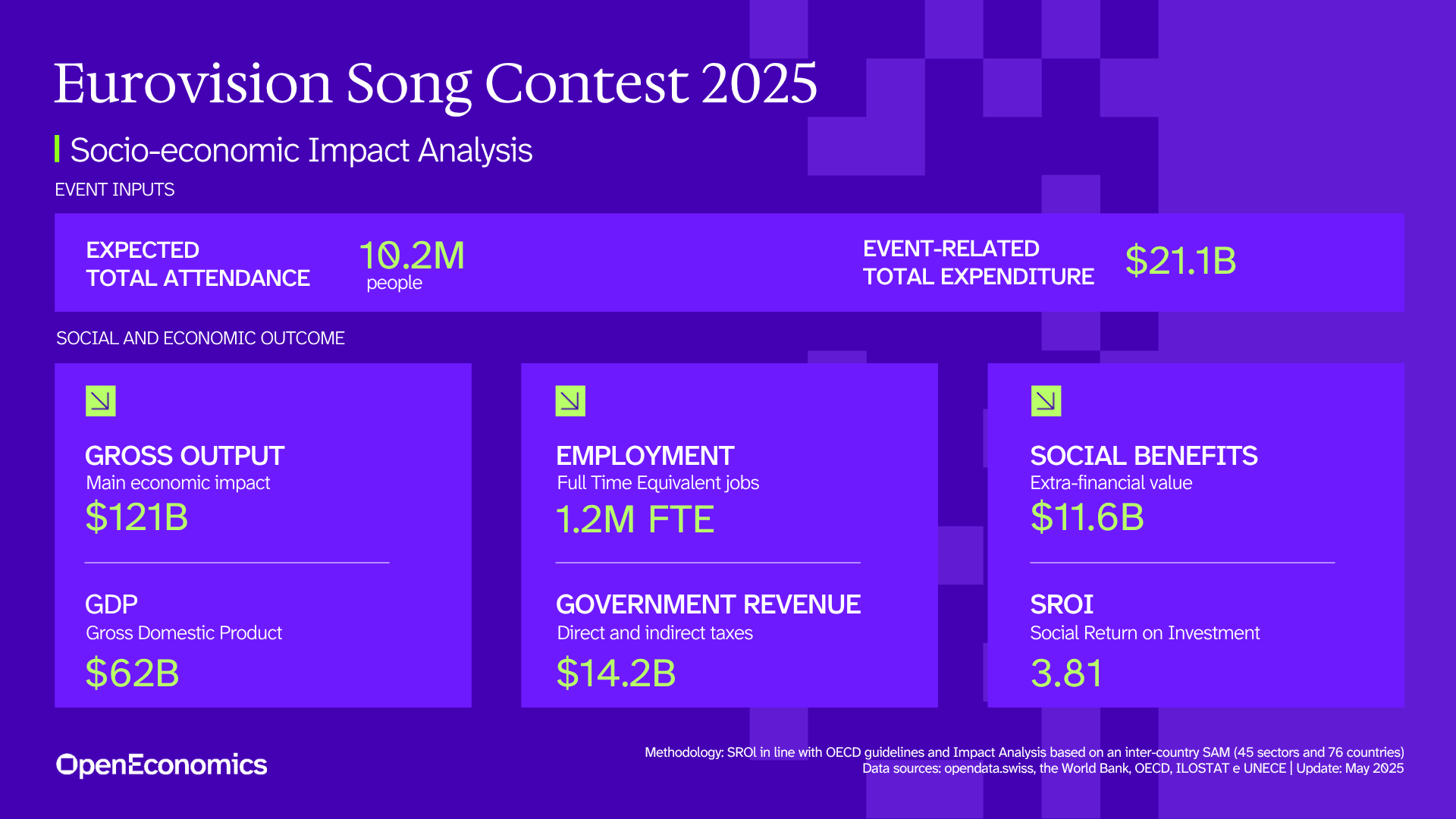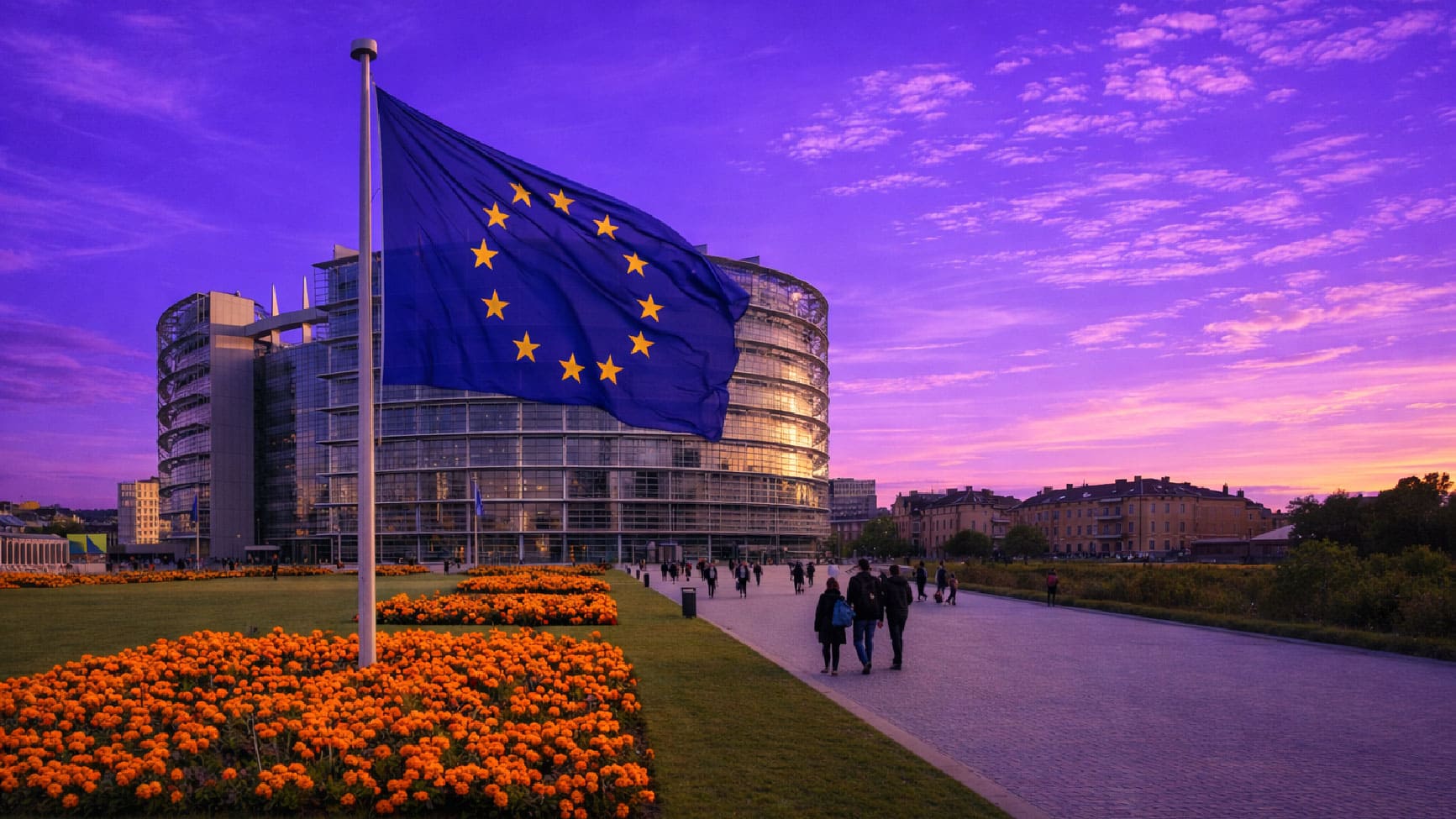Eurovision 2025 was more than just a spectacular music show. It became a true engine of economic and social growth, redefining the role of cultural events in today’s economy.
The Economic Impact of Cultural Events: A Cross-Border Dimension
According to the data, the event generated €182.4 million in additional GDP, €107.9 million in social benefits, and a Social Return on Investment (SROI) of 3.4.
In other words, every euro invested produced €3.40 in total societal value—an efficiency that few public investments can match so clearly.
One of the most striking aspects highlighted by the study is the geographical scope of the value generated. Eurovision sparked significant economic spillovers beyond the host country, confirming its role as a catalyst for European development:
• In Switzerland, the impact on GDP was €53.7 million
• In Germany, €8.2 million
• In France, €4.3 million
These figures strengthen the idea that cultural events should not be seen as localized investments, but as tools for generating shared value across regions.

Culture and Productivity: A New Paradigm
The sectoral analysis conducted in Switzerland shows that the Arts, Entertainment, and Recreation sector makes a tangible contribution to economic productivity: with a contribution of €3 million to GDP, it ranks just after sectors like construction (€9.7 million) and hospitality (€8.8 million).
This data challenges the outdated narrative that culture is merely a cost. Eurovision 2025 proves that culture produces, competes, and grows—with real, measurable, and lasting impact.
If you would like to explore other economic and social impact analyses, follow our LinkedIn page, where we publish them in preview.













